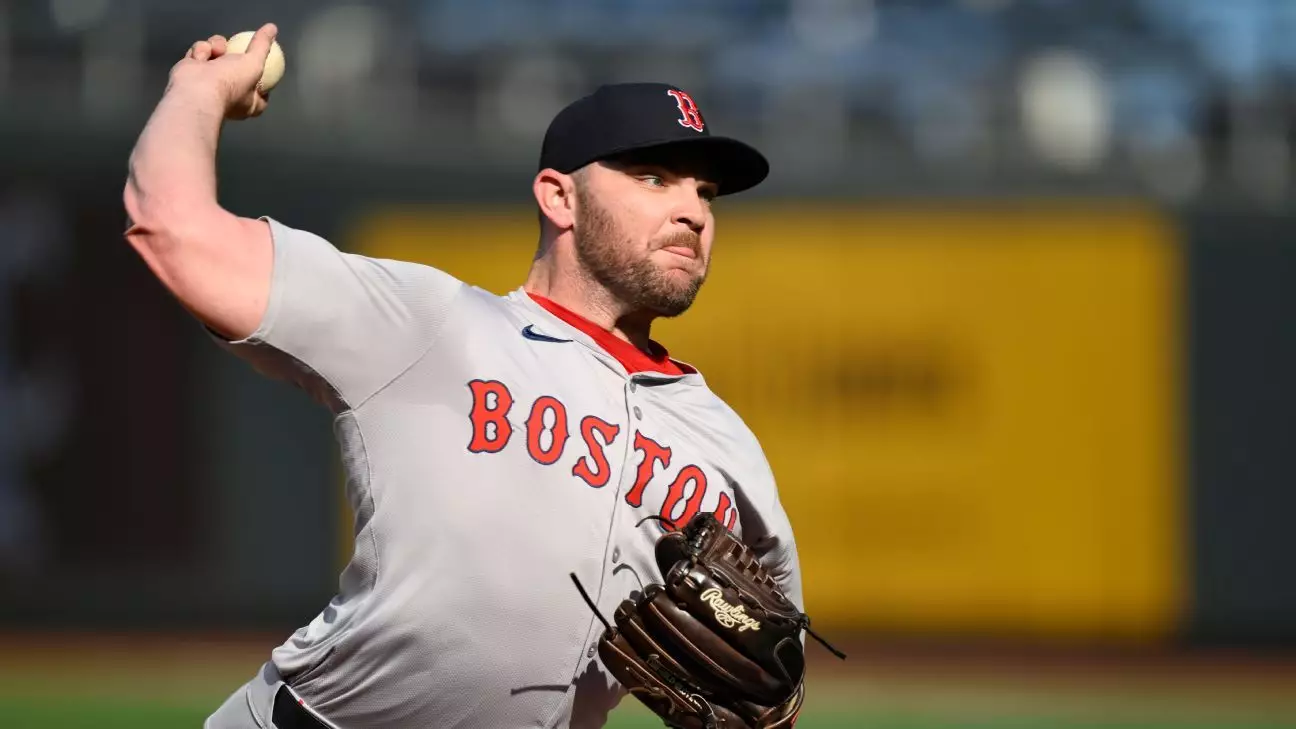In the relentless world of professional sports, athletes are often thrust into the spotlight, where their achievements are magnified but their shortcomings are mercilessly scrutinized. This was tragically highlighted when Red Sox reliever Liam Hendriks took to social media to express his outrage over death threats directed at him and his family. It’s a grim reminder that today, the often-glamorous life of a professional athlete comes hand-in-hand with a troubling downside: a pervasive culture of online harassment.
A singular event can spiral into a torrent of vitriol, where anonymous “keyboard warriors” feel entitled to hurl malicious insults and threats without any real consequences. Hendriks, who is still grappling with the ramifications of serious health issues, including a battle with non-Hodgkin’s lymphoma, shouldn’t have to contend with death threats in the wake of a baseball loss. This is not merely a lapse in sportsmanship; it’s an indictment of societal values that allow such cruelty to flourish. Citing Hendriks’ case, manager Alex Cora pointed out something almost tragically ordinary in this narrative: the nature of social media and the fake personas that populate it can create environments where real people are targeted by faceless aggressors.
The Ethics of Online Outrage
Cora’s remarks touch on a critical question: when does fan enthusiasm morph into toxic behavior? The connection between sports gambling and online vitriol is particularly concerning. The desire for players to perform at their peak can transform into a twisted rationale for attacking them when things go awry. Cora urges that while players are accountable for their performance, fans must understand that these are human beings with lives beyond the diamond. He encapsulated this sentiment by asserting that it is incumbent upon the sport to protect its players from undue scrutiny.
This situation challenges the very ethics of fandom. Are demanding fans merely expressing disappointment, or has our society bred a culture that allows cruelty to masquerade as passion? The lines are increasingly blurred. When the stakes feel high, the allure of immediate gratification through harassment seems to eclipse common decency. This isn’t just a problem for athletes; it reveals much about us as a society that stands idly by while such behavior dominates our interactions.
The Personal Toll on Players and Their Families
The emotional cost of this online hostility is profound. Not only does it affect the athletes themselves, but it also spills over into their families, creating an environment of fear and anxiety. Cora shared his experience navigating social media after his role in the Astros cheating scandal, illustrating just how invasive and damaging public scrutiny can be. The shame and concern that accompany online harassment reach far beyond the players; they infiltrate the lives of their loved ones, threatening their peace of mind.
Cora’s suggestion to filter through toxic messages rings hollow in an age where the sheer volume of negativity can be overwhelming. Imagine having to routinely sift through harassment just to read well-wishing messages from fans. As a society, we have a responsibility to create a safer space for these athletes and, by extension, for ourselves. The divisions between online personas and reality must no longer be ignored, as they contribute to a desensitized approach to cruelty.
Moving Forward with Responsibility
It’s clear that Cora and Hendriks are rallying not just for personal dignity but for accountability within the sport and its fan base. The question remains: how can we take necessary steps to address this toxic culture? Social media platforms must face the music and reevaluate their policies to safeguard individuals from harassment. The recent trend of player empowerment through social media shouldn’t come at such a dire cost.
We must advocate for regulations that impose greater scrutiny on harmful behavior online, defensively aligning with players and their families in this battle against anonymity-based harassment. This cultural shift cannot occur in isolation; it needs to be a collective movement towards fostering an environment where respect overtakes hostility.
In this pivotal moment in sports, as we grapple with the implications of technology on interpersonal interactions, fans are beckoned to rise above toxic tendencies and embrace a code of constructive criticism. The health and safety of athletes, alongside the essence of sportsmanship, must be prioritized over the fleeting thrill of spiteful commentary. It’s time for us to demand more—for our players, for ourselves, and for the integrity of the game we love.

Leave a Reply